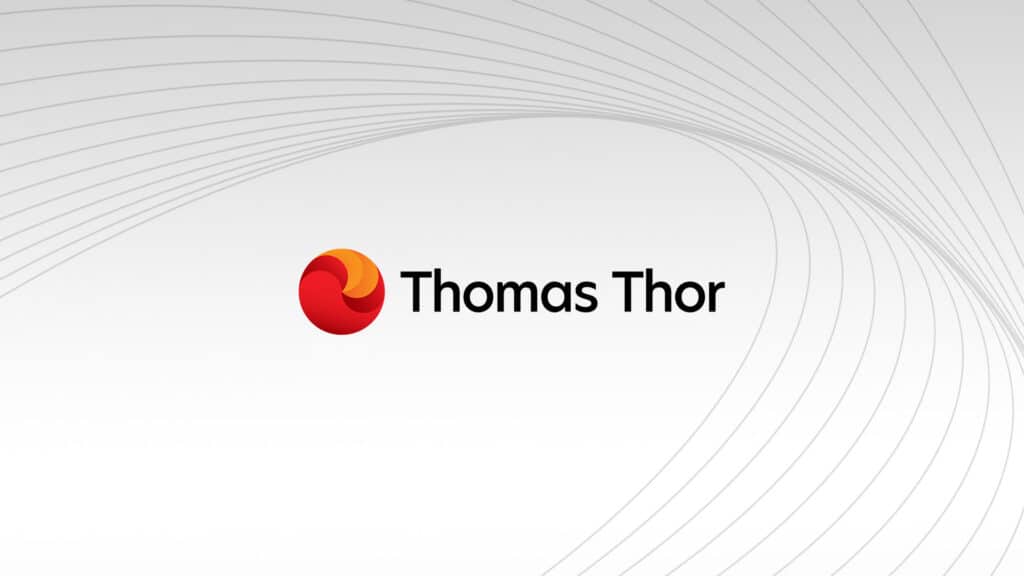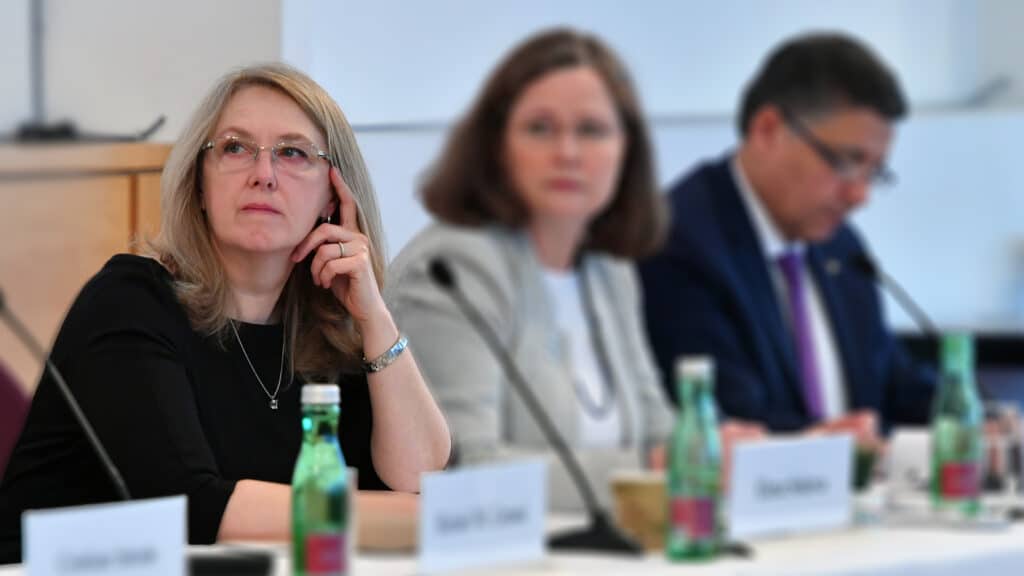Can we overcome the fear of the nuclear industry?

Founder and President of Voices of Nuclear
In its October 2018 special report SR15, the IPCC[1] emphasises[2] the necessity for increased presence of the nuclear industry in the global energy mix and with it the biggest obstacle to the achievement of this goal, its social acceptance.
“The current deployment pace of nuclear energy is constrained by social acceptability […]. Though comparative risk assessment shows health risks are low […], and land requirement is lower than that of other power sources […], the political processes triggered by societal concerns depend on the country-specific means of managing the political debates around technological choices and their environmental impacts […]. ˮ
Unprecedented efforts are currently concentrated to lead the transition of humanity from one civilisation model to another within one generation. Lifting the societal obstacles to nuclear energy, which are, according to the above mentioned report, based on misconceptions, should allow quick, substantial progress and underlying gains. While removing those obstacles should be a priority, it is not the case; they even seem to be highlighted by those who should have been trying to tackle them.
There is a few of us within the association, Voices of Nuclear, and elsewhere, who have chosen to take on this huge venture, consisting first and foremost of informing, which many seem to run away from. What will our children retain from this critical choice, that we knew and therefore acted?
“But, do you, really, think it is possible to make society accept the nuclear industry?!” Yes, I think so.
There are many answers, all positive, that can be given to such a statement and they all must be considered as pathways to an important subject, which is, communication on nuclear energy.
Obligation to overcome the fear
Do we have a choice?
It is valid to wonder whether we “have to” make the effort to overcome this fear. After all, this will represent an effort equal to those made by our opponents to generate this fear. And they are significant.
There was a time, not too long ago, where nuclear energy was only considered as one of many options for energy production – each option with its strengths and weaknesses – only put forward for certain objectives.
There was a time where the fear of the public was not an obstacle to the decision, all the more so given that the decision was one for collective interest.
These times are no more. However, we need to address this issue, and integrate it as data of our business environment, instead of thinking of it as an exterior inconvenient brought on by irrational demented people. We adapt our activity to the regulation, the behaviour of our competition and our clients’ expectations. We must also take the fear of the public and those who generate it into account at a strategic level for the conduct of business, as that is where the impact is.
The survival of the European branch depends on it, but not only.
Because climate change and the pressure brought to bear on resources and natural environments establish nuclear power as the only energy capable to make a substantial contribution to the quick replacement of energy production sources derived from fossil fuels, at scale and where it is most needed. At a time where development, environment and public health issues are taking a universal dimension that goes beyond the major economic consequences they have caused, abstaining from nuclear energy is not viable anymore.
Because democracy actually wins: citizens have stopped basing their decisions on those of trusted intermediaries and vote on their own, in good conscience, or at least that is what they think. This would not be a problem, to the contrary, if ideological and political manipulation of science subjects, allowed by the confusion between information and comprehension was not deflecting the democratic process of its objective. The channels of regulative and legislative influence dedicated to a civil society, often homogenous in its positions, representative by decree but not by nature, are multiplying and are associating with a growing electoral pressure. Taking into account the opinion of the public is now essential to the political decision.
Yet, when confronted with fear for oneself and one’s kind, citizens, at worse, encourage fear-mongers, and at best, in doubt, stand back. They fall back on the safest position: either inaction or reject.
As such, even though all presidents of the 5th Republic have been pro-nuclear, we systematically and voluntarily penalise one of the bases on which the prosperity of the nation and the quality of life of its inhabitants was built, a base that might also support the future of the planet. Opponents of the nuclear industry have brilliantly demonstrated, at the cost of several millions of euros a year, how easy it is to force the elite to agree to a view they don’t share, having forgotten to get their own representatives to adhere to that view.
We must make sure that all our clients and customers of nuclear energy, i.e. the citizens, wake up. The information to citizens must be amplified in order to compensate the lead taken by the democratic process. It is urgent to respond to the general public’s new interest in sciences and technology and to feed this interest, as others are doing it in our place.
Bring an end to risk communication: overcome the fear but also elicit interest, or even adherence
People being afraid is understandable. After all, we all are afraid of many things: getting ill now or later, flying, being in an accident, etc. The risk of accident is offset by the benefit of travelling, the risk of intoxication by feeding oneself, poisoning with healing, etc.
The originality of the fear of nuclear power is that it is not controlled, as it prevails during the decision, when it is not intuitive but the result of an intellectual construct supported by arguments, images and accumulated and entertained misconceptions.
The fear takes over because it is not challenged, but also because it is not counterbalanced.
The issue is not about reducing the fear, for example through striving for perfection at the expense of control instruments. The issue lays in offsetting the risk perception with the benefits induced. Is it worth pursuing?
In France, in 2019[3], 86% of young adults think nuclear energy contributes to global warming, which is placed first in the list of their concerns. 70% think it is an expensive source of energy whereas for 63% of them, low energy price is the priority. Finally, when 26% think renewable energies are enough to meet the demand, risk taking, even low, becomes redundant. The human mind applies a simple intuitive probability calculation that needs to be reversed: nuclear energy, in the eyes of French consumers, does not offer advantages able to offset its supposed risks.
The other major interest in approaching nuclear energy from the perspective of its benefits is that it is, in itself, a subject that only fascinates…us, professionals and supporters of the industry. Citizens aren’t interested in the object nor in its functioning. However, they are very interested in what it can bring to them.
A reality very far from the perception the French people have
Nuclear energy’s capacity to check (almost) all the boxes represents an additional challenge: how not to be “too” positive as to remain credible when talking about an energy clad with the worst flaws, without lying… Talking about Fukushima, whilst that is all our interlocutors want to do, should not be the start of any conversation. We simply cannot invent deaths where there aren’t any.
Not only are the benefits associated with nuclear energy not well known because there is not much communication about them, they have also become taboo, which is more serious.
The “benefit of nuclear energy” is a subject more taboo than the “risk of nuclear energy.”
Try it out for yourself. At a dinner party, discuss the risks of nuclear energy and, at another one, discuss its benefits. See what the proportion of questions versus objections is, and how long you will be able to talk about the benefits without mentioning the risks. Which one is easier to talk about? What do we do most?
Yet, one of the major exercises of communication within the industry consists of explaining how to explain… the risk of nuclear energy. The time dedicated to developing techniques to highlight its benefits is much more scarce.
Inaudible institutional messengers, but essential supporters for a new citizen expression
Today, the citizens are creating innovation around the field of ruins that is communication on nuclear energy, still occupied by brave and resilient institutional bodies. In the media saturated with arguments from the critics of nuclear energy, they have ended up assuming the undeniable nature of the facts. Some citizens, holders of information others do not have, have realised that just and thorough information constitutes the basis of the right to vote and free will that they had to reclaim for themselves and for others. These citizens, with insider knowledge of the industry either because they were actors or supporters of it, are now acting as whistle-blowers.
And who better than citizens to communicate to citizens that the unthinkable has become inaudible? That nuclear energy is not the perfect culprit? Not using communication to explain, but to make it desirable, to assimilate an information in the reasoning and in the preoccupations of the “other.”
The citizens are so over solicited and dissuaded, disinformation and distrust so diffuse and integrated in the corpus of common knowledge, that all contributions must be mobilised. They will not believe anyone else than those they have chosen to believe, particularly their peers, as such, we must all get to work. And by all, I mean all, in our diversity, with our imperfections, close to the people and in a spirit of solidarity.
They are also more likely to believe those who are already benefiting from nuclear energy, on the condition that they only talk about what they are experts in: a climatologist discussing its carbon-free nature, an industry worker considering the reliability of the supply, an oncologist talking about the restriction of particles, etc.; asking them to discuss their own profession, and not ours.
It is not question here of leaving them on their own: the stigma surrounding people voicing positive opinions of the nuclear industry is so significant that it is important to be aware of the issue and support everyone willing to be pilloried. But, if we do not say anything, what reasons would anyone have to promote an industry hesitant to speak in its own defence? The task of those participating in the public debate must be made easier, notably by us taking part as well. The industry puts forward arguments that can be backed up by elements and evidence it holds, ‘all’ there is left to do after that is for each person to corroborate what they want, and can, in their own areas of expertise.
A sense of solidarity and benevolence is essential between those who will speak up. The exercise is difficult, and merciless. However, it may be even harder to be seen as a conspiracy seeker lobbyist by the people we love and know, the people we work with and those we have built a certain amount of credibility with, even more so when we personally think ourselves to be supporters of rational and scientific thought.
At the origin of the fear
Nuclear energy is an industry like others
Years spent confronting the public’s interrogations, looking for answers outside of the technical functioning, hard to comprehend as a whole for just one person, systematically lead to developing one’s sense of perspective and context. This practice has two fundamental teachings: 1) the nuclear industry is an industry just like others; 2) perfection does not exist.
The nuclear industry does not distinguish itself from the other industries. There isn’t one characteristic attributed to nuclear energy that doesn’t have an equivalent or worse characteristics elsewhere: lifetime and toxicity of waste, images of its use to a destructive end, pollution, scandals, period and cost of construction, accidents, affected territories, immateriality of radioactivity, complexity of the science, difficulties communicating, connection with the State, image of not being cool enough. Everything is painfully common. Nothing is out of the ordinary, including this enumeration. Were we too proud when we implied, and even believed, that because nuclear energy is so great, everything about it would be too?
If the nuclear industry has made the expression of its own benefits and advantages taboo even in its own ranks, it is because it was convinced by its own myth. Self-punishment lead to silence which then fed into doubt and suspicion leading back to the myth and self-punishment. Together, they will have influenced the industry, its vision of itself, its processes and environment, to result in the progressive realisation of the prophecy of an unbuildable nuclear industry, as issued by its opponents.
The fear of nuclear energy is manufactured, entertained, and left to spread, take root and thrive. It is in no case insurmountable, as proved historically and regularly. It is not about responding to the fear anymore, now is the time to oppose it.
The French people would not be much concerned with nuclear energy if they weren’t constantly reminded to be
Nuclear energy has powerful opponents and shy supporters.
Pointing fingers is difficult, as the overview of responsibilities was never established. But let us interrogate ourselves and wonder who would have an interest in generating this fear, and what their motivation could be.
The first line of thought consists of coming to the realisation that, of all the applications of nuclear energy, only electricity production seems to be incriminated. The food, health, space, manufacturing and even defence industries are met with, at worst, disinterest, and, at best, increased demand. The production of electricity from nuclear energy does not have fewer benefits or more risks than its other civil applications.
It has objective competitors, like fossil fuels, which influenced the foundation of our occidental civilisation and the economical, geopolitical, military and financial power relations that constitute it. Coal was the foundation stone of the industrial revolution and consequently of the Occident taking power over the world, the tankers ‘made’ America (which in its turn created the world in which we are living); wars were started about them, other wars ended because they weren’t there.
Then comes nuclear energy. The expression too cheap to meter[4] was perhaps more about fusion than fission, but it reflects a reality: one of a low financial, environmental and human cost for the production of a nuclear kWh compared to those of other energy sources.
How long the materialisation of this vision takes doesn’t matter: in the 60s, long after the use of the atomic bomb, the perspective of an almost unlimited energy source was tainted with hope for some, and with the end of history for others. This vision must have seemed back then, and now, realistic enough to the fossil energies industry for them to support derogatory campaigns broadcasted to the public.[5]
Normal practice in commercial war
Today, the nuclear industry is not in demand and doesn’t seem to carry the same threat as before. However, pressure on fossil energies keeps rising: physical reality, enhanced by the emergence of environmental concerns, confirms the capacity that nuclear energy has to seriously challenge fossil energies.
This vision also seemed plausible to another movement, which crystallised around the conclusions drawn from the Meadows report, published in 1972 by the Club of Rome, and which founded political ecology around growth limits[6]. The report highlighted, for the first time, the pressure exerted on the planet by economic and demographic growth. Neo-Malthusians, nature and great outdoors defenders, advocates of austerity, some with greater means than others, all assembled in their opposition to nuclear energy. In the midst of the decolonisation movement, its unlimited energy potential constituted for them one of the ways, for the demographic wave they were afraid of, to take place.
Never mind that the humanity has since proved that the enlargement of energy access increased the development indexes[7] and that they then contributed to demographic stabilisation and increase of environmental conscience: the damage is done. The heirs of the founders of modern day ecology are not interested in finding out where their anti-nuclear power conviction comes from, even more so in the sense that this conviction is the basis, for some, of their identity as individual or group.
Once the culprit designated by these two major currents with deep ramifications, the train is in motion. The manipulation of good faith and useful contradiction allows to spread the anti-nuclear arguments in all components of pollution and to cover them with the veil of responsibility.
The saturation of the media, the absence of contradictory information even in the centre of knowledge and popular culture, as well as the political manipulation are so strong that the arguments from the anti-nuclear have become, from the majority of the population, including scientists and pro-nuclear, facts.
Beyond its direct and concrete impact on the industry, this massive voluntary disinformation is threatening the democratic exercise and the people’s right to self-determination, at a time where its choices are not only impacting others but also the next generations, like rarely before in history.
It then becomes difficult not to fall in conspiracy theories or self-flagellation and even more essential to remember that though it is on the wrong side of society, nuclear energy is on the right side of history. And that we are not here to watch it be rewritten.
[1] Intergovernmental Panel on Climate Change
[2] IPCC SR15 report 2018 ‒ Chapter 4, 4.3.1.3 Nuclear energy, special report on Global Warming of 1,5°C (www.ipcc.ch/sr15/report)
[3] BVA survey conducted for Orano in April 2019, “French people and nuclear energy, knowledge and perceptions.”
[4] In 1954, Lewis Strauss, president of the Atomic Energy Comission, adressed scientific writers in a speech, p.9, https://www.nrc.gov/docs/ML1613/ML16131A120.pdf
[5] The 19th of November 2007, in Australia, the Construction, Forestry, Maritime, Mining and Energy Union (CFMEU) financed the following advertisement in the Courier Mail (bottom of page 21), https://letthefactsspeak.org/
[6] “The Limits to Growth, A Report for The Club of Rome’s Project on the Predicament of Mankind”, (1972), MEADOWS Donella H., MEADOWS Dennis L., RANDERS Jorgen & BEHRENS III William W., Universe Books, ISBN 0-87663-165-0, http://www.donellameadows.org/wp-content/userfiles/Limits-to-Growth-digital-scan-version.pdf
[7] “Access to electricity versus poverty levels”. Source: adapted from World Bank, 2011a; IEA, 2008. Appearing in Energy, Poverty and Development Figure 2.7, http://www.iiasa.ac.at/web/home/research/Flagship-Projects/Global-Energy-Assessment/GEA_Chapter2_development_hires.pdf
Share this article
Related articles
Help us grow and achieve your potential at a values-driven business.


 By
By 

